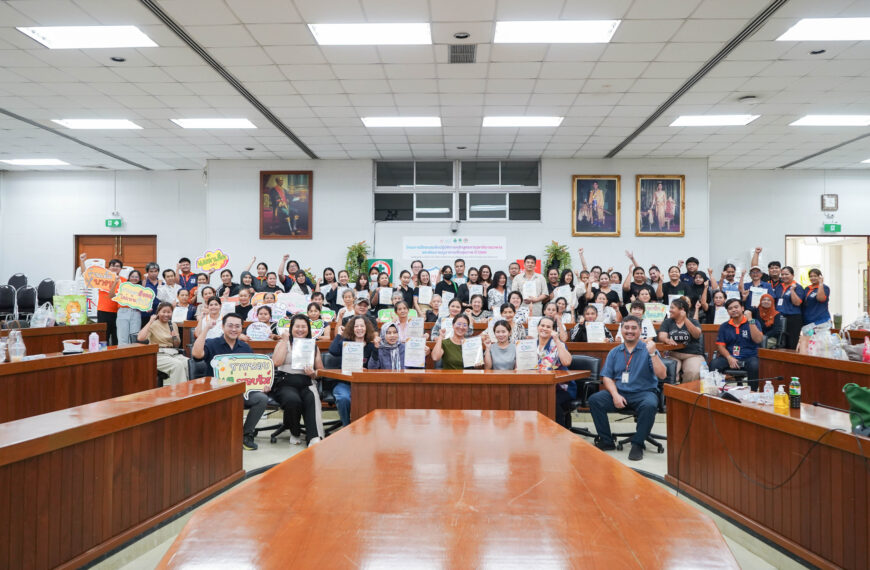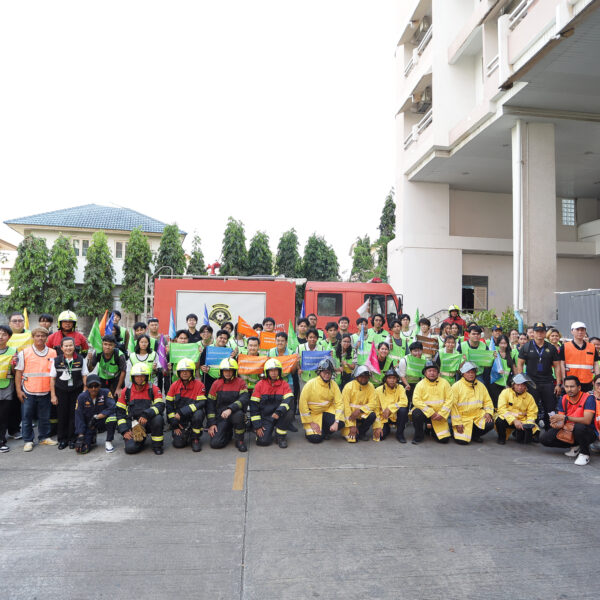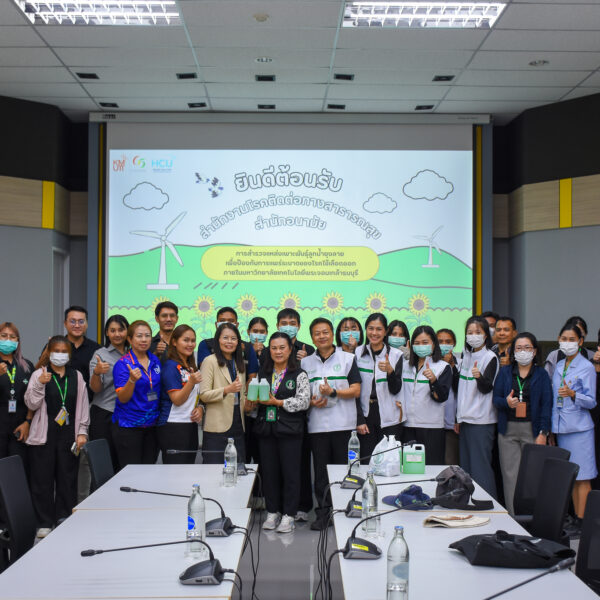King Mongkut’s University of Technology Thonburi (KMUTT) is at the forefront of sustainability with its comprehensive strategic plan spanning 2018 to 2024. This ambitious initiative focuses on six core areas, each addressing critical aspects of environmental, social, and institutional responsibility. Together, they form a cohesive framework for transforming the university into a global leader in sustainability. Here’s an expanded look at each area:
1. Green Infrastructure and Setting
KMUTT is committed to creating a sustainable campus through master planning and infrastructure development. This includes:
- Formulating policies and strategic plans for green innovations.
- Building partnerships at national and global levels to support a sustainable university network.
- Engaging student clubs and fostering collaboration through data-driven approaches, including statistical analysis and dynamic website platforms. The goal is to integrate sustainability into every aspect of campus life while positioning KMUTT as a model for green university initiatives worldwide.
2. Energy and Climate Change
With climate change posing global challenges, KMUTT takes bold steps to reduce its carbon footprint through:
- Promoting energy-efficient appliances and renewable energy use.
- Expanding green areas and forest planting initiatives.
- Organizing activities to increase awareness and inspire energy conservation among students and staff. These efforts underscore the university’s commitment to tackling climate challenges head-on while contributing to the global energy transition.
3. Waste Management
Tackling waste sustainably is a cornerstone of KMUTT’s strategic plan. The university emphasizes:
- Recycling and reuse of materials.
- Minimizing municipal solid waste and hazardous waste generation.
- Implementing initiatives such as paper and plastic usage reduction and eliminating single-use plastics. By fostering a circular economy on campus, KMUTT creates a cleaner, more efficient environment.
4. Water Conservation
Water is a vital resource, and KMUTT takes a proactive approach to its conservation through:
- Implementing water recycling programs.
- Encouraging the use of water-efficient appliances.
- Educating the campus community on practices to reduce water consumption. These initiatives aim to embed water efficiency into the university’s daily operations while ensuring sustainability for future generations.
5. Transportation
KMUTT envisions a campus where mobility aligns with environmental responsibility:
- Promoting the use of zero-emission vehicles and shuttle bus services.
- Supporting walking and cycling through the “Bike Society” initiative.
- Reducing car usage by encouraging carpooling and limiting parking areas. These measures reduce emissions and foster a culture of sustainable transportation.
6. Education and Research
As an academic institution, KMUTT integrates sustainability into learning and discovery by:
- Offering sustainability-related courses and creating research funds for innovative solutions.
- Establishing learning spaces and events that engage students in real-world sustainability challenges.
- Publishing comprehensive sustainability reports to highlight progress and inspire change. KMUTT recognizes education and research as catalysts for advancing sustainability both on and beyond campus.
7. Health and Safety
Recognizing the interconnectedness of well-being and sustainability, KMUTT focuses on:
- Ensuring safety across life, road, workplace, laboratory, and food domains.
- Conducting safety training and implementing robust safety protocols. This holistic focus creates a secure environment where innovation and sustainability can thrive.
Each focus area is visually represented by dynamic icons, reinforcing KMUTT’s systematic approach to sustainability. By addressing environmental, social, and academic challenges, the university demonstrates its commitment to creating a sustainable future that aligns with global standards and supports Thailand’s development goals.
Together, these actions reflect KMUTT’s unwavering dedication to sustainability, setting a benchmark for other universities to follow.






